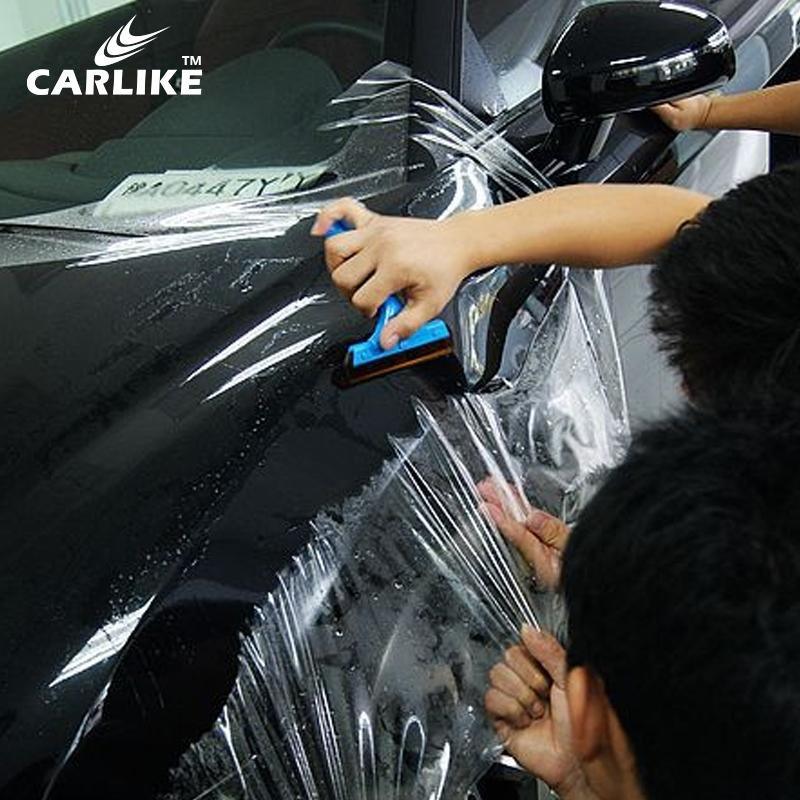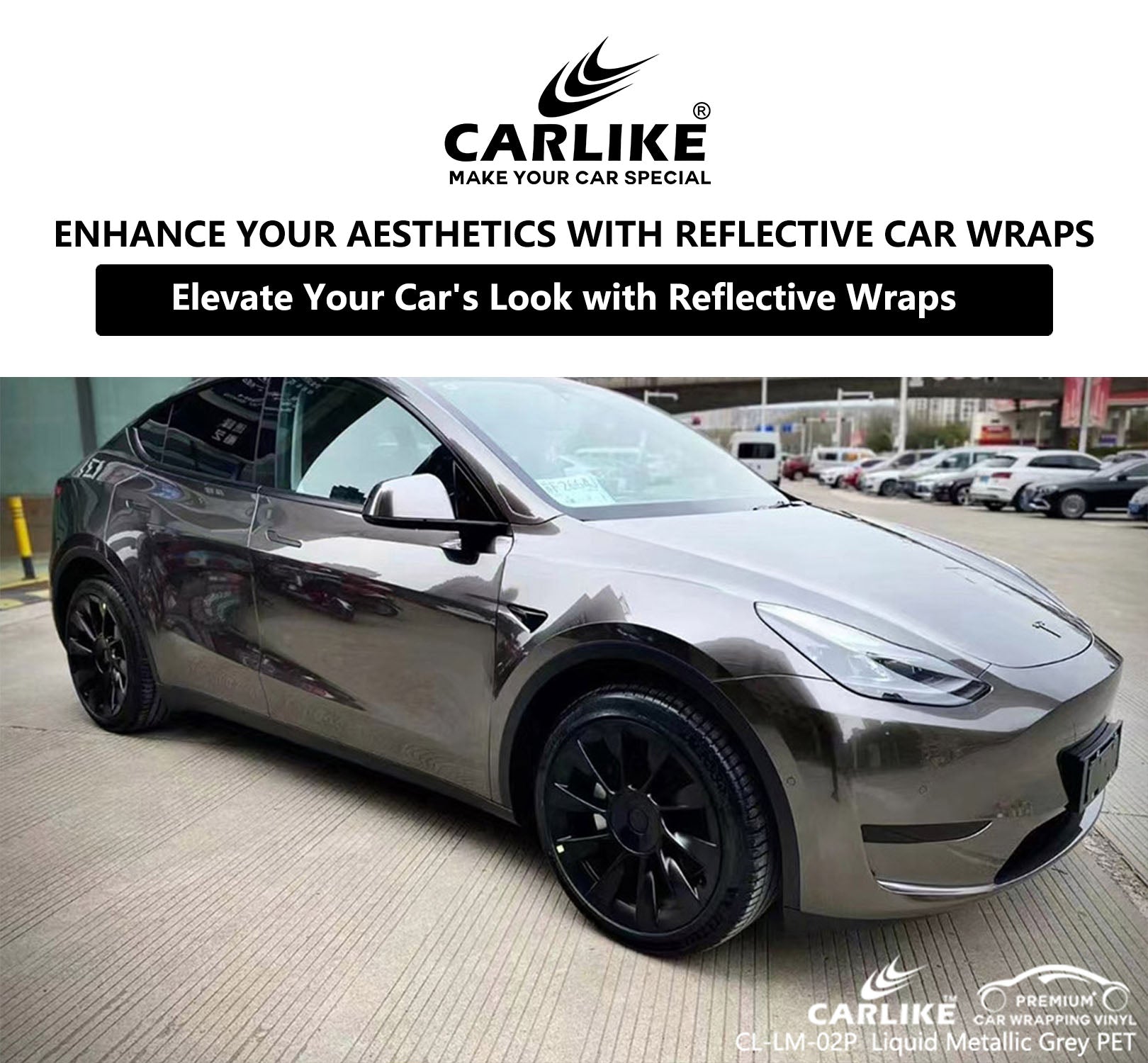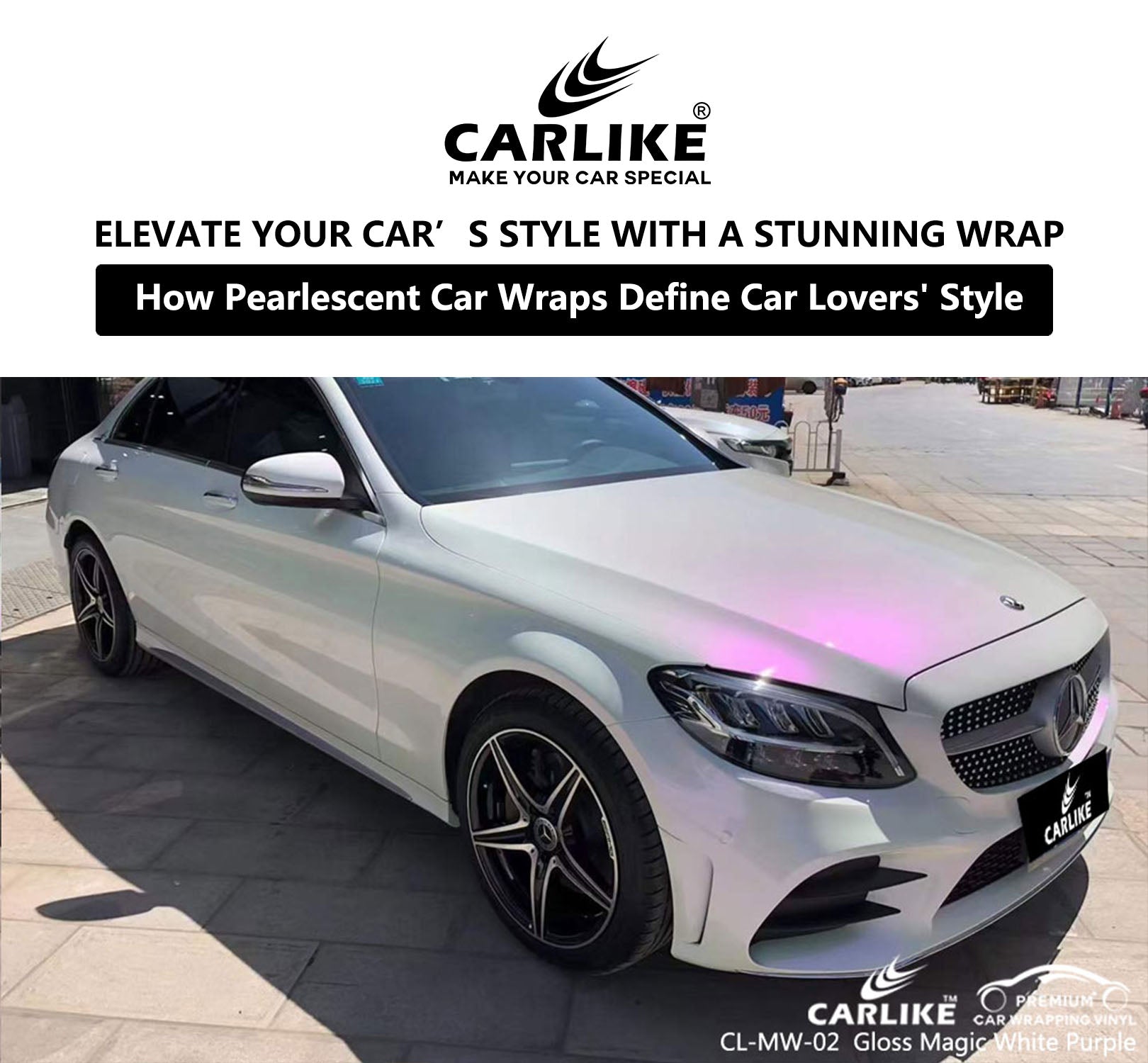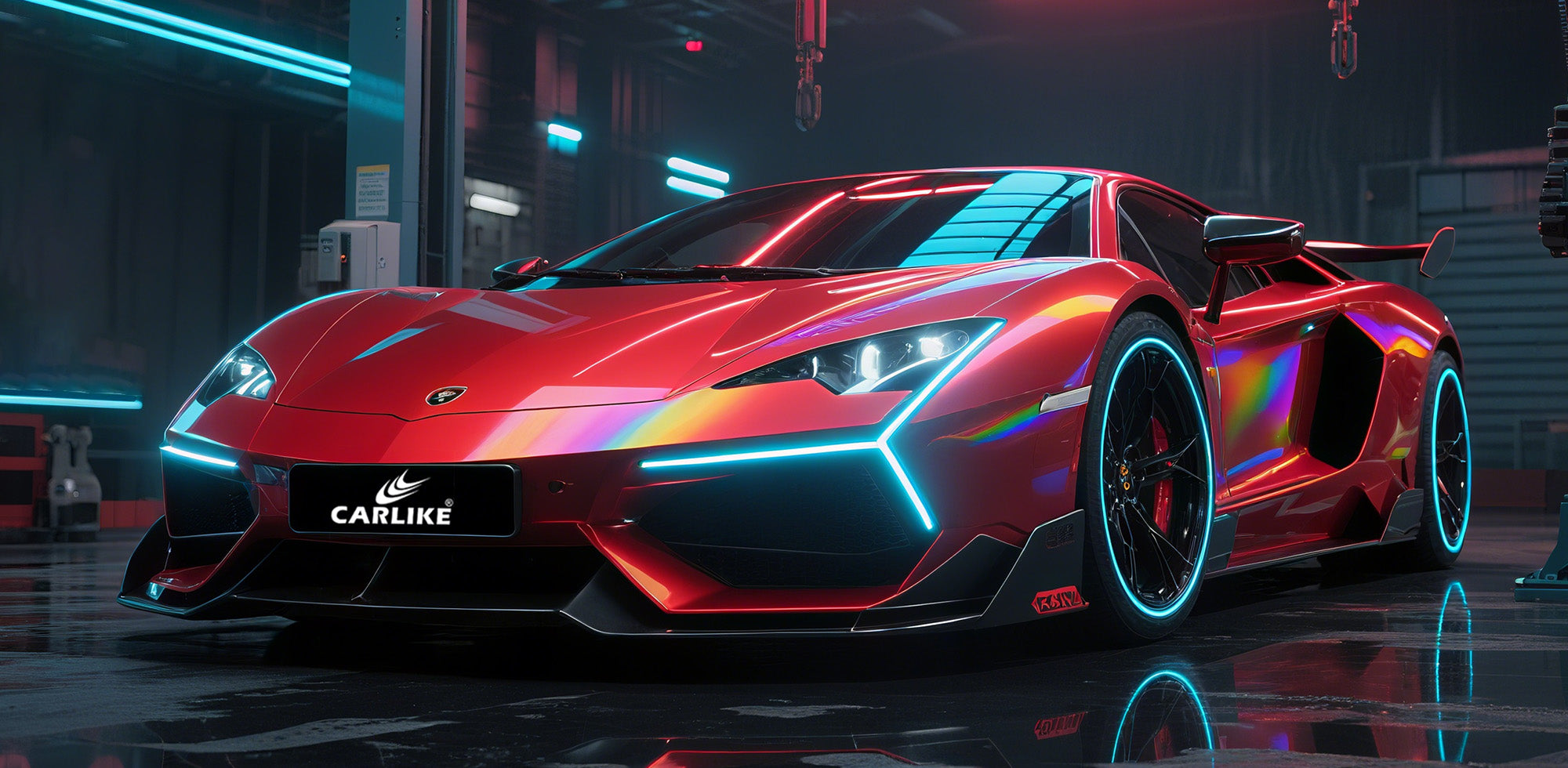Understanding the Science Behind PPF Car Wraps
PPF (Paint Protection Film) car wraps have gained significant popularity among car owners due to their exceptional ability to protect the vehicle's paint from various types of damage. To truly grasp the effectiveness and value of PPF car wraps, it is essential to delve into the science behind their design and construction.
PPF car wraps are made from a specialized thermoplastic urethane film that consists of multiple layers. Each layer serves a distinct purpose in providing optimal protection for your car's paint. Let's explore the key components and the science behind them:
1. Adhesive Layer: The bottom layer of the PPF car wrap is the adhesive layer. This layer ensures the film adheres securely to the surface of the vehicle. The adhesive is carefully formulated to maintain a strong bond while still allowing for easy removal without leaving any residue or damaging the paint underneath.
2. Polyurethane Layer: The polyurethane layer, also known as the protective layer, forms the core of the PPF car wrap. It is responsible for shielding the vehicle's paint from external factors such as rock chips, scratches, bird droppings, UV rays, and chemical contaminants. This layer possesses remarkable self-healing properties, enabling it to repair minor scratches and swirl marks when exposed to heat, such as sunlight or warm water.
3. Clear Coat Layer: The topmost layer of the PPF car wrap is the clear coat layer, which provides an additional level of protection and enhances the film's durability. This layer is responsible for resisting yellowing, fading, and maintaining the glossy appearance of the wrap over time. The clear coat layer also contributes to the self-healing capabilities of the film.

The science behind PPF car wraps lies in the combination of these layers and their unique properties. The adhesive layer ensures a strong bond, while the polyurethane layer acts as a sacrificial barrier, absorbing impacts and preventing them from reaching the car's paint surface. The self-healing properties of the film allow it to repair minor scratches, maintaining a pristine appearance for an extended period.
Furthermore, the clear coat layer adds an extra level of protection and longevity, safeguarding the wrap from environmental factors, such as UV radiation and oxidation, that can degrade its quality and appearance.
It's important to note that the science behind PPF car wraps extends beyond the film itself. The installation process is crucial for achieving optimal performance. A professional installer will carefully apply the film using specialized techniques, ensuring a seamless and precise fit that maximizes the protective benefits.
Understanding the science behind PPF car wraps empowers car owners to make informed decisions about protecting their vehicles. By comprehending the composition and functionality of these wraps, you can appreciate their ability to shield your car's paint from damage while maintaining a flawless appearance for years to come.

Step-by-Step Guide: Installing PPF Car Wraps on Your Vehicle
Installing a PPF (Paint Protection Film) car wrap on your vehicle is a meticulous process that requires careful attention to detail. While it's advisable to have a professional handle the installation for the best results, understanding the step-by-step procedure can give you insights into the intricacies involved. Here's a comprehensive guide to the installation process:
1. Preparation:
- Clean the vehicle: Thoroughly wash and dry the car to remove any dirt, debris, or contaminants that could affect the adhesion of the film.
- Surface inspection: Examine the paint surface for any imperfections, such as scratches, swirl marks, or chips. Correct these issues before proceeding with the installation to ensure a smooth and flawless application.
2. Pattern creation:
- PPF car wraps are typically pre-cut to fit specific vehicle models. Using specialized software or templates, the installer selects the appropriate pattern for your vehicle.
- Customization: In some cases, the installer may need to modify or trim the pattern to accommodate specific features or preferences.
3. Film application:
- Positioning: Carefully position the PPF film over the desired area, starting with a manageable section, such as the hood or bumper.
- Activation: Activate the adhesive layer of the film using a mixture of water and a slip solution. This solution allows the installer to reposition the film during the installation process.
- Squeegee technique: Use a squeegee or specialized installation tool to smooth out the film and remove air bubbles, starting from the center and working towards the edges. This step requires precision and expertise to achieve optimal adhesion and a seamless finish.
- Heat application: Apply heat to the film using a heat gun or heat lamp. This step helps the film conform to the contours of the vehicle's surface and activates the self-healing properties of the film.
4. Finishing touches:
- Trimming: Trim any excess film using a sharp knife or blade to ensure a precise fit.
- Edges and corners: Pay close attention to the edges and corners of the film, ensuring they are properly secured and seamlessly blended with the vehicle's contours.
- Cure time: Allow the film to cure for the recommended time, usually 24 to 48 hours, before exposing the vehicle to harsh conditions or washing it.
It's important to note that the installation process may vary depending on the specific PPF car wrap brand, installer preferences, and vehicle type. Professional installers have the expertise and experience to navigate any challenges that may arise during the process, ensuring a high-quality and long-lasting installation.
By following this step-by-step guide, you can gain a better understanding of the intricacies involved in installing PPF car wraps. However, it's still recommended to consult with a professional installer to ensure the best outcome and to take advantage of their expertise in handling the nuances of PPF installation.
Unmatched Protection: How PPF Car Wraps Shield Your Car's Paint
The paint on your car is constantly exposed to a wide array of threats, ranging from small debris and road contaminants to more significant hazards like stone chips and scratches. To safeguard your car's paint and preserve its pristine appearance, PPF (Paint Protection Film) car wraps offer unparalleled protection. Let's explore how PPF car wraps shield your car's paint and provide unmatched protection.
1. Impact Absorption: PPF car wraps act as a sacrificial barrier, absorbing the impact of small debris, gravel, and road particles that would otherwise cause scratches and chips on your car's paint. The durable thermoplastic urethane material used in PPF wraps is engineered to withstand and disperse the force of such impacts, preventing them from reaching the paint surface.
2. Scratch and Abrasion Resistance: The topmost layer of PPF car wraps is designed to resist scratches and abrasions, acting as a shield against minor scrapes from everyday encounters. This layer possesses remarkable self-healing properties, allowing it to absorb and repair superficial scratches when exposed to heat, such as sunlight or warm water. This self-healing characteristic helps maintain the flawless appearance of your car's paint.
3. Chemical and Environmental Protection: PPF car wraps provide a barrier against chemical contaminants, such as bird droppings, tree sap, insect residue, and harsh cleaning agents. These substances can etch or stain your car's paint if left untreated. The chemical resistance of PPF car wraps ensures that these contaminants do not penetrate the film, allowing for easy cleaning and preventing damage to the underlying paint.
Additionally, PPF car wraps offer UV protection. The film acts as a barrier against the harmful effects of ultraviolet radiation, which can cause fading, discoloration, and degradation of your car's paint over time. By blocking UV rays, PPF car wraps help maintain the original color and finish of your vehicle.

4. Long-Term Preservation: PPF car wraps provide long-lasting protection for your car's paint. The high-quality materials used in these wraps are resistant to yellowing, fading, and degradation from prolonged exposure to sunlight and environmental factors. This ensures that your car retains its showroom shine and appearance for years to come.
5. Seamless and Invisible Coverage: When professionally installed, PPF car wraps are virtually invisible and seamlessly blend with the paint of your vehicle. This allows the original color and design to shine through without altering the aesthetics of your car. The transparency of PPF wraps ensures that your car's paint remains vibrant and visually appealing.
By shielding your car's paint from various hazards, PPF car wraps not only protect its value but also reduce the need for costly paint repairs and touch-ups. The unmatched protection provided by PPF car wraps preserves the integrity of your car's paint, extending its lifespan and enhancing its overall appearance.
It's worth noting that proper installation by a professional is crucial to maximize the benefits of PPF car wraps. Experienced installers have the expertise and precision to ensure seamless coverage and optimal performance, ensuring your car receives the highest level of protection against paint damage.
Longevity and Durability: PPF Car Wraps for Extended Paint Life
Your car's paint is subjected to various elements that can cause it to degrade over time. From harsh weather conditions to road debris and UV radiation, protecting your car's paint is crucial for maintaining its appearance and value. PPF (Paint Protection Film) car wraps are an excellent solution for extending the life of your car's paint. Let's delve into how PPF car wraps provide longevity and durability, safeguarding your vehicle's paint for years to come.
1. Shielding Against Physical Damage: PPF car wraps act as a barrier, shielding your car's paint from physical damage caused by stone chips, scratches, and scuffs. The durable thermoplastic urethane material used in PPF wraps is engineered to absorb the impact of such hazards, preventing them from directly affecting the paint surface. This layer of protection significantly reduces the risk of paint chipping, ensuring that your car maintains a flawless exterior.
2. Self-Healing Properties: PPF car wraps possess remarkable self-healing properties. Minor scratches and swirl marks that may occur during regular use can be repaired through exposure to heat, such as sunlight or warm water. The heat triggers the self-healing process, allowing the film to regain its original form and appearance, effectively erasing any superficial imperfections. This self-repair mechanism ensures that your car's paint remains free from minor blemishes, contributing to its longevity and overall visual appeal.
3. Resisting Environmental Factors: PPF car wraps are designed to withstand environmental factors that can degrade your car's paint. The film is resistant to UV radiation, preventing it from fading or discoloring over time. Additionally, PPF wraps provide a barrier against chemical contaminants, such as bird droppings, tree sap, and insect residue, that can etch or stain the paint surface. By repelling these elements, PPF car wraps keep your car's paint looking fresh and vibrant, preserving its original color and finish for an extended period.

4. High-Quality Materials: PPF car wraps are crafted using high-quality materials that are specifically engineered for longevity and durability. The multilayer construction of the film ensures its ability to withstand the rigors of everyday use and exposure to the elements. These materials are resistant to yellowing, fading, and degradation, ensuring that the PPF car wrap maintains its transparency and protective properties over time.
5. Easy Maintenance: PPF car wraps are relatively easy to maintain compared to traditional paint. The smooth surface of the film makes it easier to clean and maintain a showroom-like appearance. Regular washing with mild soapy water and gentle wiping with a microfiber cloth is typically sufficient to keep the PPF wrap looking its best. This ease of maintenance contributes to the longevity of both the PPF car wrap and the underlying paint.
By investing in a PPF car wrap, you provide your car's paint with a robust layer of protection that extends its life and enhances its durability. The longevity and durability offered by PPF car wraps ensure that your vehicle maintains its aesthetic appeal and resale value, even after years of use.
It's important to note that professional installation is crucial for maximizing the longevity and durability of PPF car wraps. Skilled installers have the expertise to ensure proper adhesion, seamless coverage, and precise fitment, guaranteeing that your car receives the highest level of protection and the longest possible lifespan for its paint.
FAQ for ppf car wrap?
Q: What is a PPF car wrap?
A: A PPF (Paint Protection Film) car wrap is a specialized thermoplastic urethane film that is applied to the exterior surfaces of a vehicle to protect the paint from various types of damage.
Q: How does a PPF car wrap enhance my vehicle?
A: PPF car wraps enhance vehicles by providing a layer of protection against scratches, stone chips, abrasions, and other types of damage. They also enhance the appearance of the vehicle by maintaining the original paint color and finish.
Q: How long does a PPF car wrap last?
A: The lifespan of a PPF car wrap can vary depending on factors such as the quality of the film, environmental conditions, and maintenance. Generally, high-quality PPF car wraps can last anywhere from 5 to 10 years or even longer with proper care.
Q: Will a PPF car wrap damage the original paint of my vehicle?
A: When installed correctly, PPF car wraps should not damage the original paint of the vehicle. In fact, they provide an additional layer of protection against damage. However, improper installation or removal by an unskilled individual can potentially cause damage to the paint.
Q: Are PPF car wraps only available in clear?
A: PPF car wraps are available in various finishes and textures, including clear, matte, satin, and gloss. This allows car owners to choose a finish that best suits their preferences and desired aesthetic.
Final Words
In conclusion, PPF car wraps offer a powerful combination of protection and transformation for your vehicle. By investing in a PPF car wrap, you can shield your car's paint from scratches, stone chips, and other types of damage, ensuring its longevity and preserving its resale value. Additionally, these wraps enhance the appearance of your vehicle, maintaining the original color and finish while providing a seamless and virtually invisible layer of protection.
Whether you're looking to safeguard your prized possession or give your car a fresh new look, PPF car wraps are a smart choice. Trust the expertise of professional installers to ensure proper application and enjoy the benefits of a transformed and protected vehicle. Explore the world of PPF car wraps and elevate your driving experience today.








